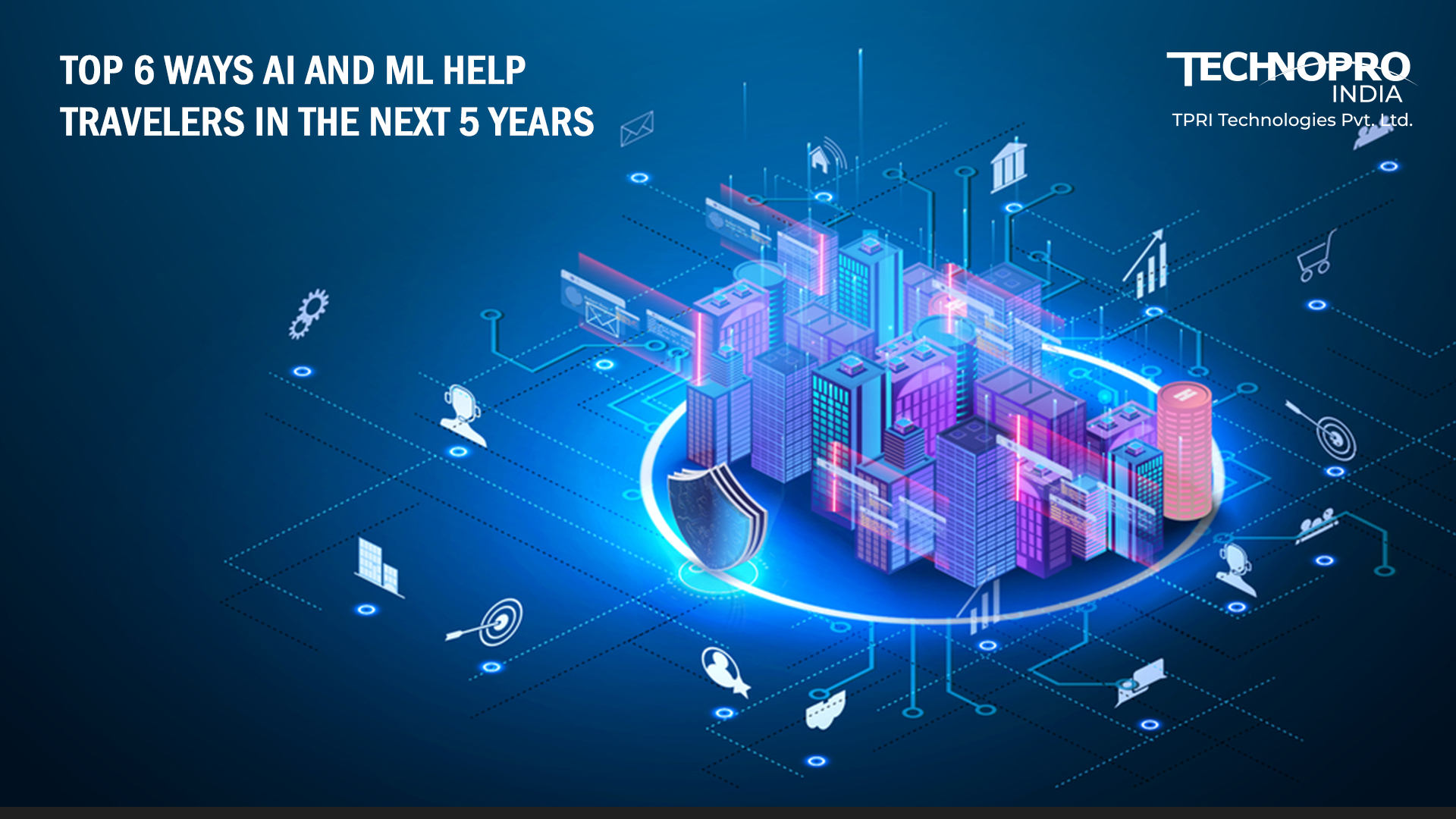

Or call us now at +91 8068474747 (9am - 6pm Pacific time)

March, 29 2023
In the past few years, Artificial Intelligence (AI) and Machine Learning (ML) have revolutionized several industries, including healthcare, education, and finance. Travel is no exception, and we have already started seeing how AI and ML are transforming the travel industry. With the help of these technologies, travelers can now enjoy personalized experiences, better trip planning, and improved customer service. It’s true that AI and ML are changing the experiences of the travelers.
How can AI and ML help travelers in the next five years?
Here’s a quick look at it.
One of the biggest benefits of AI and ML for travelers is the ability to receive personalized recommendations. By analyzing the traveler's preferences, such as destination, activities, and budget, AI algorithms can suggest the best travel options. For example, AI-powered travel agents can analyze a traveler's past bookings, search history, and other data to recommend hotels, flights, and activities that match their interests. This not only saves time for the traveler but also enhances the overall travel experience.
For example, an AI-powered travel agent can analyze a traveler's past bookings, search history, and other data to recommend hotels, flights, and activities that match their interests. The system can also consider the traveler's budget and travel dates to provide the most cost-effective travel options. Additionally, the system can learn from the traveler's feedback, such as which hotels or activities they enjoyed the most, to refine its recommendations for future trips.
Overall, AI and ML can provide highly personalized recommendations for travelers, taking into account their unique preferences and needs. This not only saves time for the traveler but also enhances the overall travel experience.
AI and ML can also enhance customer service in the travel industry. Improved customer services driven by AI and ML can come in various ways. These include:
Overall, AI and ML can provide significant benefits to travelers, improving their travel experience and providing more personalized and efficient customer service.
Another way AI and ML can help travelers is through predictive analytics. These technologies can analyze data from various sources, such as weather forecasts, flight schedules, and traffic conditions, to predict potential travel disruptions. For example, ML algorithms can analyze historical data to predict flight delays or cancellations, enabling travelers to make alternative arrangements. Similarly, predictive analytics can help travelers avoid traffic congestion and choose the best time to travel to their destination.
Predictive analytics can be highly useful for travelers in several ways:
Overall, predictive analytics can help travelers save time, money, and effort by providing them with valuable insights and recommendations that are tailored to their specific needs and preferences.
AI and ML can also enhance safety and security for travelers. Facial recognition technology is already being used at airports to verify passengers' identities and expedite the boarding process. In the next five years, we can expect more advanced AI-powered security systems to be deployed at airports, hotels, and other travel-related facilities. These systems can analyze security footage in real-time, detect potential threats, and alert security personnel. Additionally, AI-powered translation tools can help travelers communicate with locals in their native language, reducing the risk of miscommunication and misunderstandings.
Planning a trip can be a time-consuming and stressful process. However, with the help of AI and ML, travelers can now enjoy a more streamlined and efficient trip planning experience. For example, AI algorithms can analyze a traveler's past bookings and preferences to suggest the best destinations and activities. Additionally, ML algorithms can analyze the traveler's budget and travel dates to suggest the most cost-effective travel options. Moreover, AI-powered travel planners can create personalized itineraries for travelers, including recommended restaurants, attractions, and activities.
Real-Time Travel Assistance
AI and ML can also offer real-time travel assistance to travelers. These include a host of things, which can come in handy when you’re traveling a new destination. These include:
Conclusion
In conclusion, AI and ML are set to transform the travel industry in the next five years. With the help of these technologies, travelers can enjoy personalized recommendations, improved customer service, predictive analytics, enhanced safety and security, improved trip planning, and real-time travel assistance. As AI and ML continue to evolve, we can expect even more innovative applications in the travel industry, making travel more convenient,
